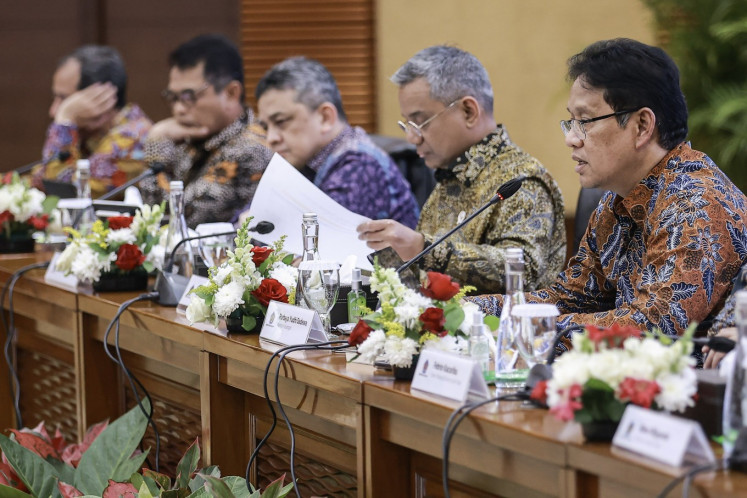Popular Reads
Top Results
Can't find what you're looking for?
View all search resultsPopular Reads
Top Results
Can't find what you're looking for?
View all search resultsHow big data matters for public policy in Indonesia
Corporations tend to be reluctant to share their client data to protect their reputation and competitiveness.
Change text size
Gift Premium Articles
to Anyone
T
he rapid development of digital technologies has been assimilated into our daily activities, creating a vast amount of real-time data from different types of sources, structures and formats. This “big data” now becomes a gold mine used for business intelligence and for public policy.
Big data is expected to play an important role in producing official statistics in support of more timely, accurate, effective and efficient public policies. It also can reduce respondent burdens faced in traditional surveys.
Big data can also provide new statistical indicators needed especially for Sustainable Development Goal Indicators. The United Nations Statistics Division (UNSD) created the Global Working Group (GWG) on Big Data for Official Statistics to boost the implementation of several big data sources in the statistical-production process.
National statistics offices (NSOs) in several countries have started investigating and implementing big data in production of official statistics. The statistics offices of the Netherlands, Canada and New Zealand have used scanner data from several supermarket chains for producing consumer price indices (CPI). The German Federal Statistical Office and the Department of Statistics Malaysia (DOSM) use web scraping of online shops and marketplace for calculating CPI.
Furthermore, Mobile Positioning Data (MPD) have been used by several countries such as Indonesia, Estonia, South Korea and the United Kingdom for tourism statistics, migration, commuter pattern and other demographic indicators.
Another big data source, satellite imagery has significant potential to provide more timely and granular statistical indicators. NSO of China, Canada, Indonesia and other international organizations (UNICEF, ADB, FAO) have utilized satellite imagery for poverty mapping, agriculture and environmental statistics.
The implementation of big data faces various challenges, including data access, confidentiality, transparency, methodology, infrastructure and lack of human resources.


















